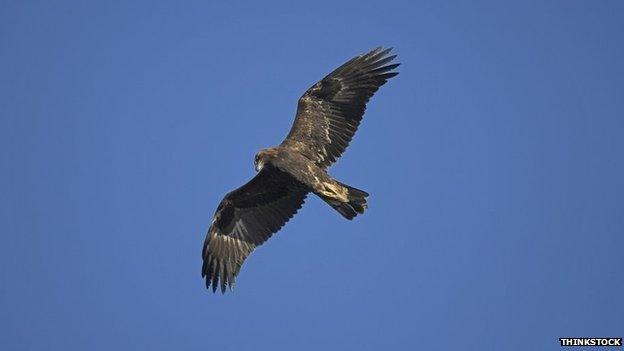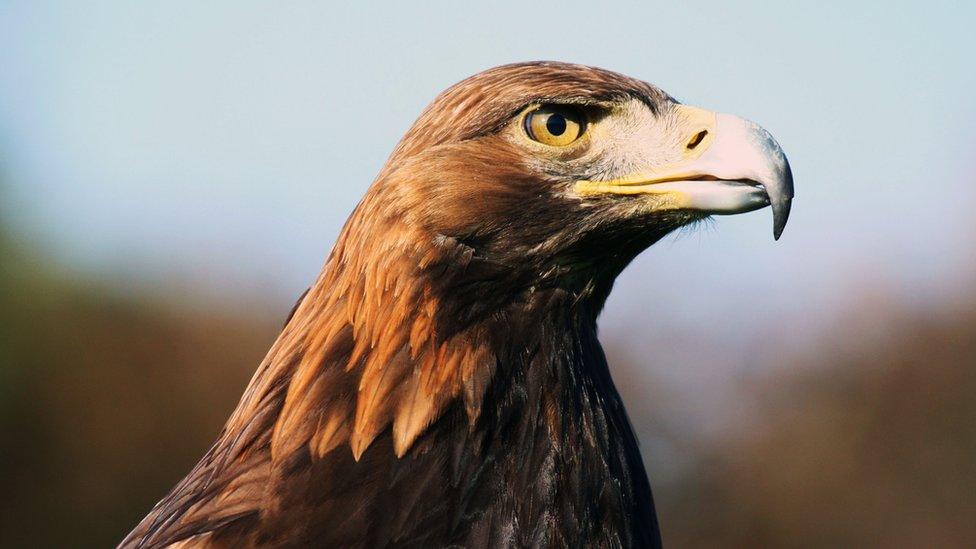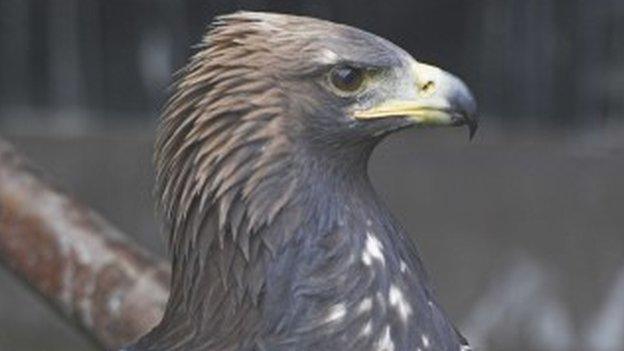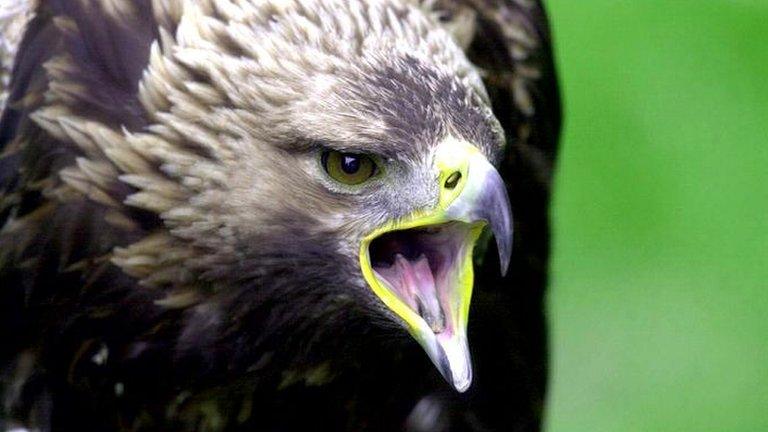Golden eagles from the Highlands may be released in southern Scotland
- Published

Golden eagles taken from nests in the Highlands and Islands may be released in southern Scotland.
BBC Scotland has learned the first releases could take place as early as next summer subject to checks and consultations.
The golden eagle is a symbol of the Highlands but scientists say it should be equally at home further south.
There are no more than four breeding pairs there and the birds have had limited nesting success.
If all goes according to plan, as many as eight birds will be released each summer, over the next three to five years.
A report published by Scottish Natural Heritage in 2014 found the area could support between 11 and 13 pairs of golden eagles.
Some experts believe the figure could be higher still, with as many as 16 breeding pairs.
Golden eagles have all but disappeared in the north of England.
It is thought the relocated birds could eventually help the species extend its range back into Cumbria and Northumberland.
Illegal persecution remains a serious concern, but the environment minister, Dr Aileen McLeod, vowed it would "not be tolerated under any circumstances".
She said: "It is particularly encouraging to see so many partners working hard to return golden eagles to the skies above the South of Scotland, in a way that enables grouse shooting to co-exist alongside birds of prey.
"The Scottish government has already taken action to put an end to the illegal killing of wild birds and I will continue to take whatever steps are necessary, which could include further tightening the law."

A growing eagle population could help boost nature tourism in southern Scotland
The South of Scotland Golden Eagle Project is supported by Buccleuch Estates, the landowners' organisation Scottish Land and Estates, RSPB Scotland and Scottish Natural Heritage.
Chief Executive of Scottish Land and Estates, Doug McAdam, told BBC Scotland: "Landowners value golden eagles, they are one of our most iconic birds and I think people will work hard with us to make this project a success.
"Often landowners are portrayed as the villain here and against golden eagles and nothing could be further from the truth."
Duncan Orr-Ewing of RSPB Scotland said: "The initial scoping work by the partnership is showing healthy prospects for a thriving golden eagle population in this area.
"We hope to secure official approval in due course to make this project a reality, following engagement with the local community."
Dr Adam Smith of the Game and Wildlife Conservation Trust argued persecution was only one factor in the golden eagles' decline in southern Scotland.
He said: "It's absolutely not the only cause. One of the major causes was the amount of forestry expansion.
"Golden eagles do not use these dark, dense conifer forests effectively."
Dr Smith said other factors included the availability of prey, disturbance and weather conditions.
Mr Orr-Ewing of RSPB Scotland said the significance of persecution should not be underestimated.
He said: "We've certainly had cases of golden eagles being shot and poisoned in recent years.
"Indeed, this project originated after an appalling incident five or six years ago in which one of the only breeding adults in the Scottish Borders was found illegally poisoned."
- Published20 March 2015

- Published13 February 2015
